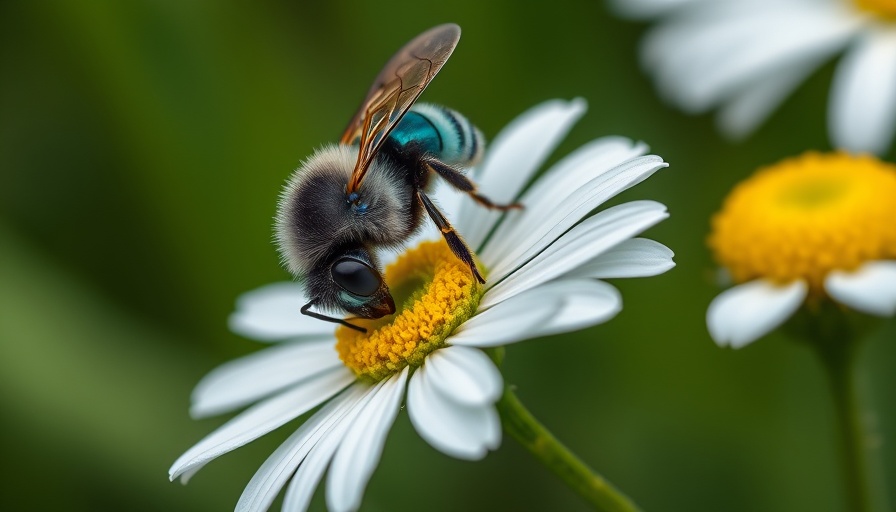
Bees and the Unseen Battles Ahead
With the increasing awareness surrounding environmental issues, it’s hard not to feel a bit overwhelmed by the constant barrage of challenges facing our planet. Among the most worrisome indicators is the alarming decline of pollinators—those wonderful little creatures critical to food production and ecosystem health. On May 20, United Nations World Bee Day, a cutting-edge report from Bee:wild uncovers emerging threats to these essential species that we might not have considered before.
According to this report, peer-reviewed by leading experts in the field, threats like conflicts, microplastics, and artificial light pollution uncover a whole new range of challenges that bees and other pollinators must contend with over the next decade. One thing is crystal clear: our buzzing friends are not just grappling with pesticides and habitat loss; they are facing the complexities of our modern world.
The Top Emerging Threats to Pollinators
The report identifies a dozen significant concerns, ranked in order of their novelty and impact:
- Wars and Conflicts: Conflicts force nations to simplify their agricultural output, often growing fewer crop varieties. Less variation means fewer food sources for pollinators, putting them at greater risk.
- Microplastic Pollution: Smaller than a grain of rice, microplastics can infiltrate beehives and pollinators' diets, impacting their health and longevity.
- Pesticide Cocktails: The dangerous mixture of different pesticides, particularly in developing nations, further compromises pollinator health.
And that’s just scratching the surface! Others on the list include the effects of artificial lights at night, which confuse pollinators and inhibit their nighttime feeding habits by reducing their flower visits by a staggering 62%!
Why Should We Care?
This isn’t merely an ecological concern; it’s one that impacts our food systems, climate resilience, and, ultimately, our economic security. Think about it: according to the study, nearly 90% of flowering plants, alongside the majority of our global crops, rely on pollinators. The health of our ecosystems and agriculture hinges on their survival.
Lead author Simon Potts emphasizes the urgency of acting swiftly. "By identifying these emerging threats early, we can develop strategies to mitigate their impacts. This is not just a conservation issue; it’s about the future of our food supplies and our shared environment," he shared in a press statement. Isn’t it sobering to think that our health and well-being are intertwined with the fate of these creatures?
Counterarguments and Diverse Perspectives
While the findings of the report are alarming, it is essential to address some counterarguments surrounding conservation efforts. Critics often point out the high complexity of resolving the multifaceted issues threatening bees. From industrial agriculture to urban living, the solutions aren’t merely about banning pesticides but require systemic changes and a unified approach from multiple sectors.
However, some also argue about the effectiveness of conservation programs. If resources are channeled into misguided projects, the intended benefits could backfire. It’s vital that we invest wisely in initiatives that genuinely support pollinator health and longevity.
Your Role in Pollinator Protection
So, what can you do to help the bees? First, consider planting a garden with native flowering plants—something that’s beneficial for pollinators! You can also support local farmers who practice sustainable agriculture and reduce single-use plastics in your daily life.
Let’s not forget that every action counts. Awareness is the first step, and understanding what diminishes pollinator health is crucial in our collective mission. Even small lifestyle changes can resonate significantly—every little effort contributes to a broader push for change.
A Call to Action
This May, as we celebrate bees, let's also commit ourselves to protecting them. Consider donating to local conservation groups dedicated to pollinator health or advocating for policy changes that emphasize ecological sustainability. Together, we can ensure that bees and other pollinators thrive long into the future. Help safeguard our world, one buzz at a time.
 Add Row
Add Row  Add
Add 




 Add Row
Add Row  Add
Add 

Write A Comment